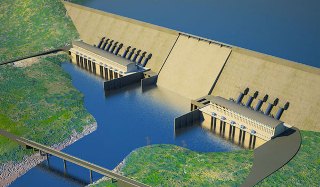Egypt denies hindering efforts for tripartite deal on Ethiopia’s dam
April 12, 2018 (KHARTOUM) – Egypt has denied impeding the signing of a deal on the Grand Ethiopian Renaissance Dam (GERD) at a recent tripartite meeting held in Khartoum with Ethiopia and Sudan on 5 April.

Also, Ethiopia’s foreign ministry spokesperson Meles Alem told reporters in Addis Ababa that his government is keen to minimize any significant harm to downstream countries, however, “there will never be negotiation on any agreement that we were never part of”.
Reacting to the two statements, the Egyptian foreign ministry rejected the blame stressing on Egypt’s “positive spirit and a serious desire” to reach a deal in line with the directives of 29 January meeting between the leaders of the three countries in Addis Ababa.
Ahmed Abu Zeid Egyptian Foreign Ministry Spokesperson said his country has shown flexibility and a positive attitude during the whole process and will keep doing that.
“Such attitude was also obvious in the Egyptian proposal for the World Bank participation in the tripartite negotiations, and other proposals put forward by Egypt during the recent nine-party meeting in Khartoum,” Abu Zeid said
He further disclosed that Egyptian Foreign Minister Sameh Shoukry has addressed Wednesday a letter to his Sudanese and Ethiopian counterparts to call for a second nine-party meeting in Cairo to resume talks.
Following the failure of Khartoum meeting, Ghandour said the next meeting would only include the irrigation ministers of the three countries and when they reach a deal the others will join them.
On 29 January meeting, Presidents Omer al-Bashir, Abdel Fattah al-Sisi and the then Prime Minister Hailemariam Desalegn agreed that the meeting should include foreign affairs and irrigation ministers and the head of security and intelligence services in the three countries.
(ST)
